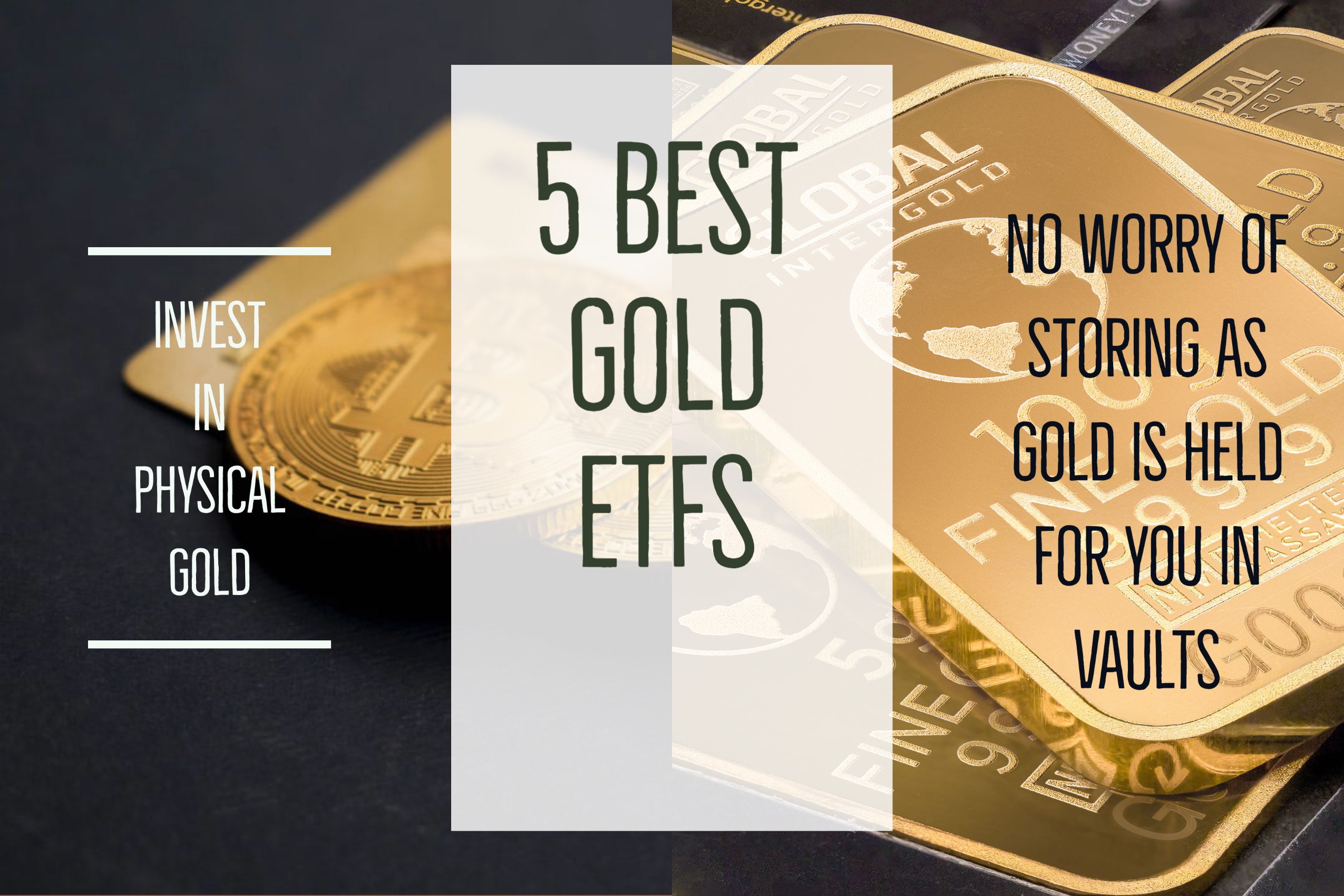Investing in gold can be done in many ways: purchase gold directly, purchase the shares of Gold ETFs that replicate the price of gold, purchase Gold ETFs that hold gold derivate contracts that are backed by gold or hedge and trade gold futures or futures options.
For those investors who would like to invest tracking the performance of the gold without actually purchasing physical gold, the following 5 best Gold ETFs are a great option:
| Ticker | Issuer | Expense Ratio | AUM | Ounces held |
| GLD | State Street Global Advisors | 0.40% | $76.91 billion | 40,255,824 |
| IAU | Blackrock | 0.25% | $31.48 billion | 14,658,519 |
| SGOL | Aberdeen Standard Investments | 0.17% | $2.73 billion | 1,236,848 |
| BAR | Granite Shares | 0.17% | $1.31 billion | 624,594 |
| OUNZ | Merk | 0.25% | $385.51 million | 201,717 |
SPDR Gold Trust (GLD)
GLD is the first to market to invest directly in physical gold. Net Asset Value (NAV) for the fund is determined with the LBMA PM Gold Price. Thus the fund has an extremely close relationship with spot prices. The product structure reduced the difficulties of buying, storing and insuring physical gold bullion for investors.
iShares Gold Trust (IAU)
IAU is an efficient way for investors to hold physical gold. The underlying gold bars are held in vaults around the world, with an inventory list available on the Issuers website. IAU shines for buy-and-hold retail investors because of its lower handle and low expense ratio. Each share corresponds to 1/100th of an ounce of gold at the time of its launch.
Aberdeen Standard Physical Gold Shares ETF (SGOL)
SGOL’s Trust assets are custodied by JPMorgan, vaulting in Zurich and London. On November 4, 2019 the shares were split 10 for 1, reducing the handle. SGOL shares currently trade at 1/100th of the spot price for gold, which appeals to investors wishing to place small orders.
Granite Shares Gold Trust (BAR)
BAR invests directly in physical gold stored in a London vault and custodied by ICBC Standard Bank. BAR is incredibly cheap to hold with one of lowest expense ratios in its segment.
VanEck Merk Gold (OUNZ)
Unlike other gold funds that hold physical bullion, OUNZ allows individual investors to redeem shares in exchange for gold coins and bars. Like most gold funds, OUNZ should hew closely to the price of gold, lagging only by its fee, making it an excellent way to get exposure to the price of gold. Taking delivery of gold is not taxable. When you sell it, it’s taxable at that point.
Tax implications
These gold ETF funds are treated as “Grantor trust” for the U.S. Federal income tax purposes. As a result, the fund itself is not subject to income taxes. Instead, the Fund’s income and expenses “flow through” to the shareholders. The advantage of the Grantor trust structure is that the trustees cannot lend the gold bars. Thus it protects the investors.
The physically held gold funds are deemed a collectible by the IRS. Due to which, the taxes on long-term gains can be steep. Under current law, gains recognized by individuals from the sale of “collectibles,” including gold bullion, held for more than one year are taxed at a maximum federal income tax rate of 28%, rather than the 20% rate applicable to most other long-term capital gains. The tax rates for capital gains recognized upon the sale of assets held by an individual US Shareholder for one year or less are generally the same as those at which ordinary income is taxed.

